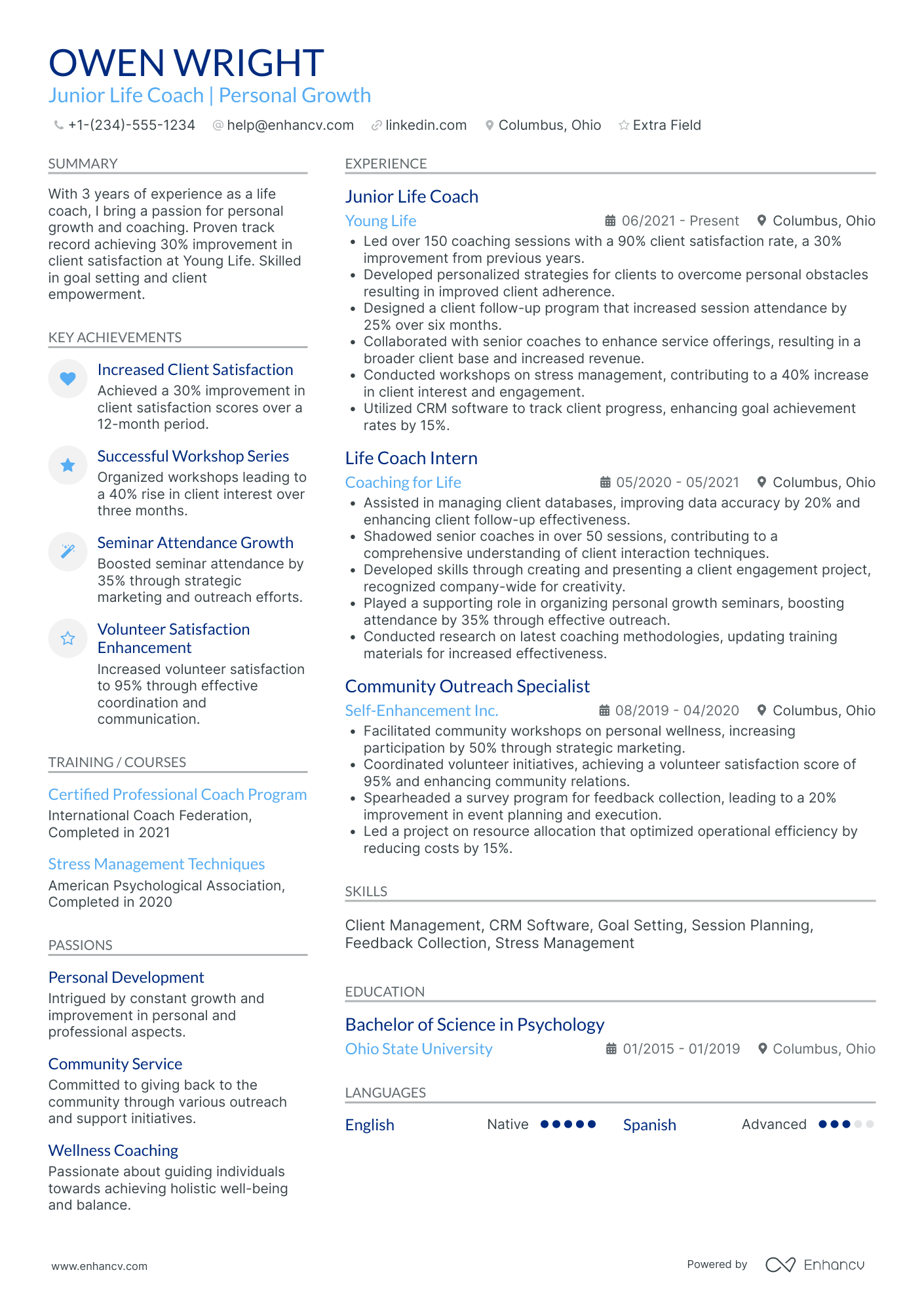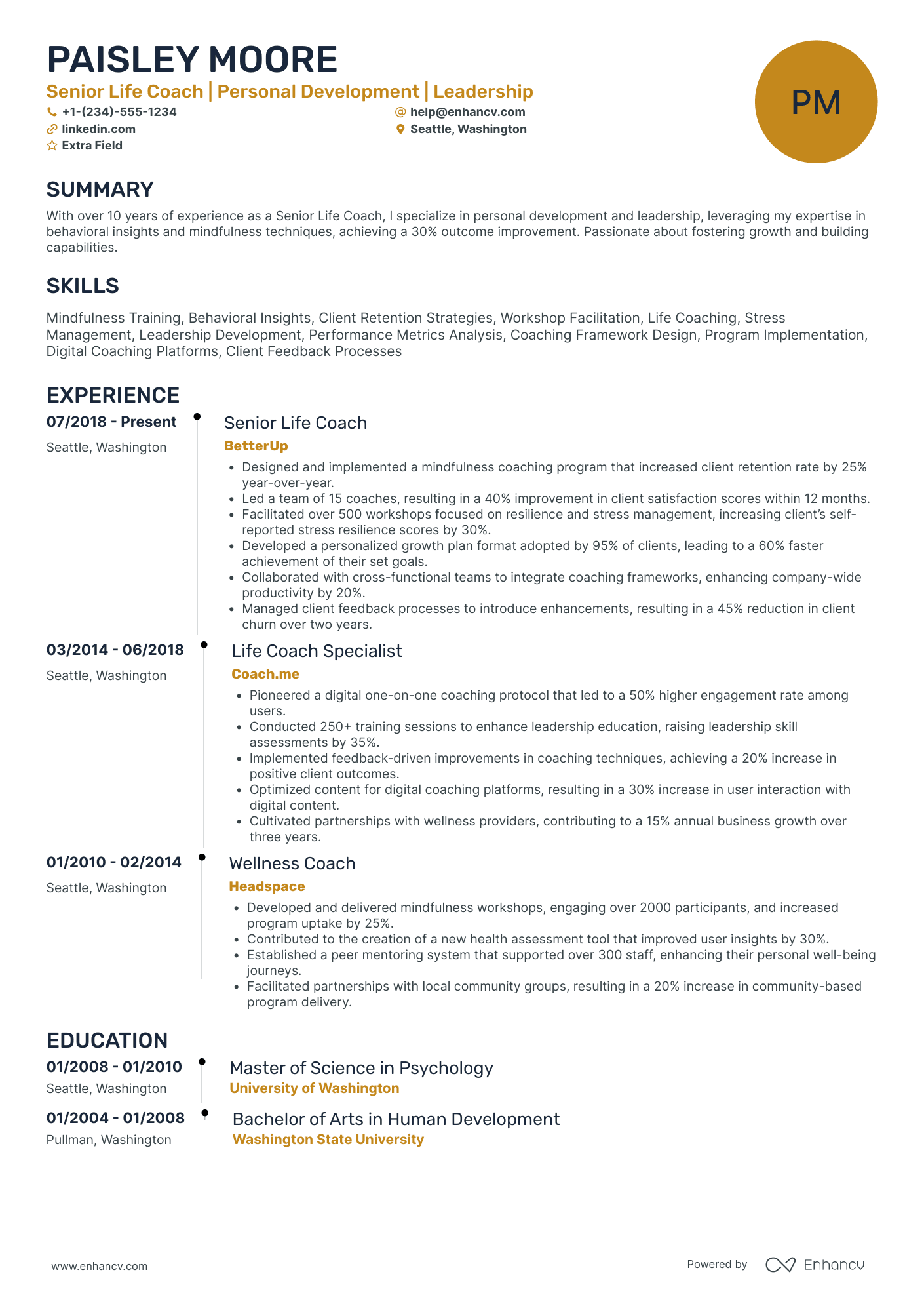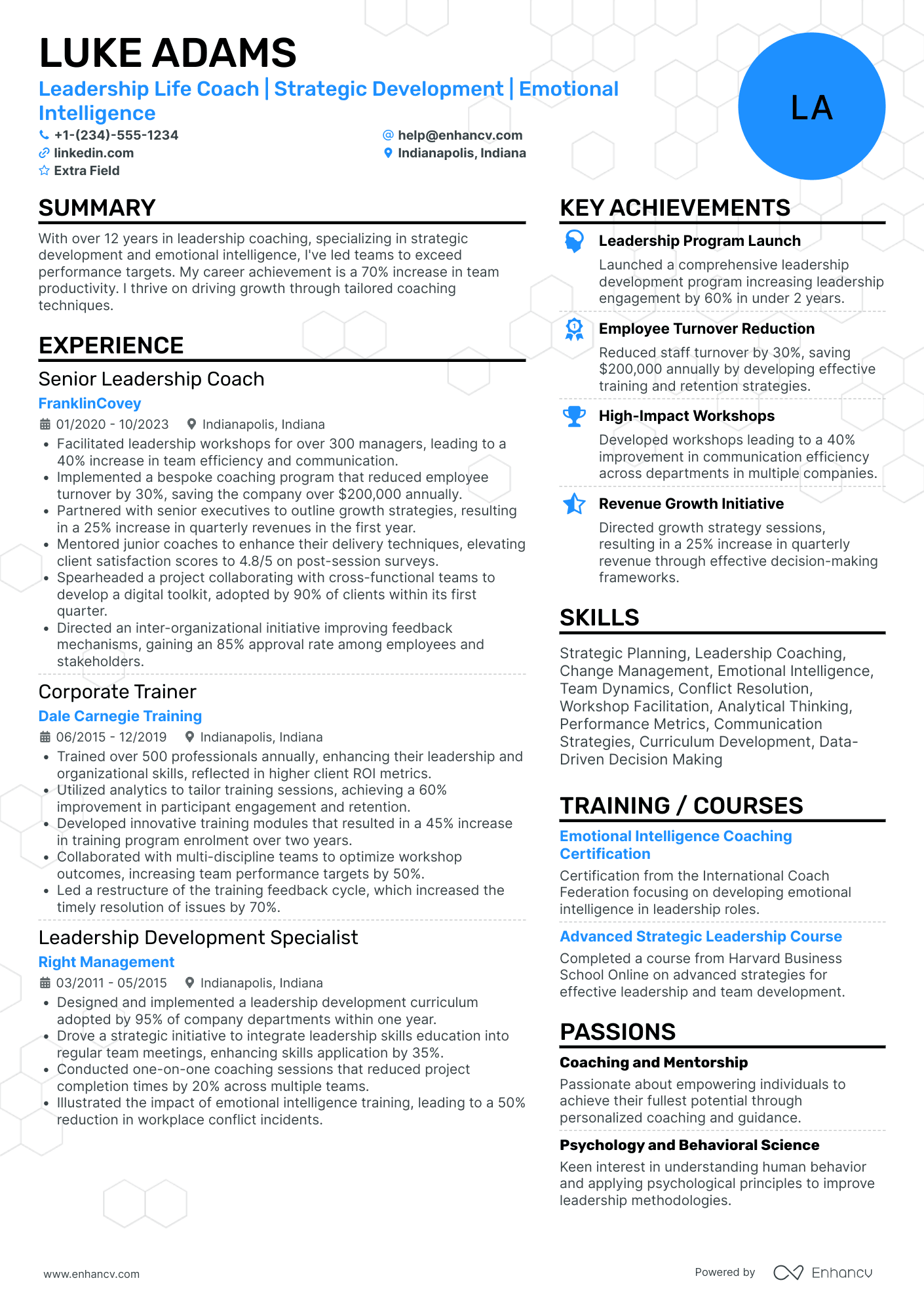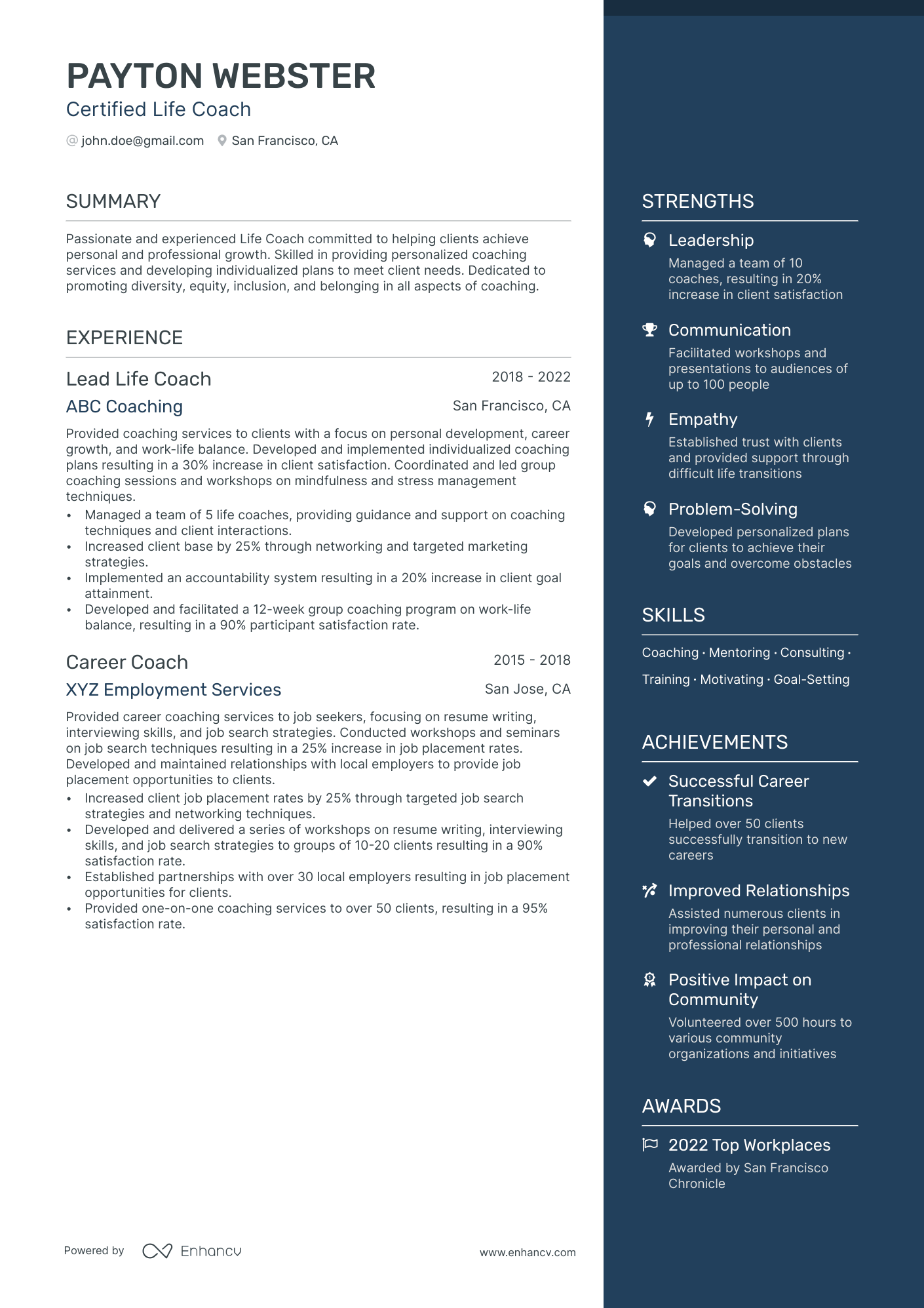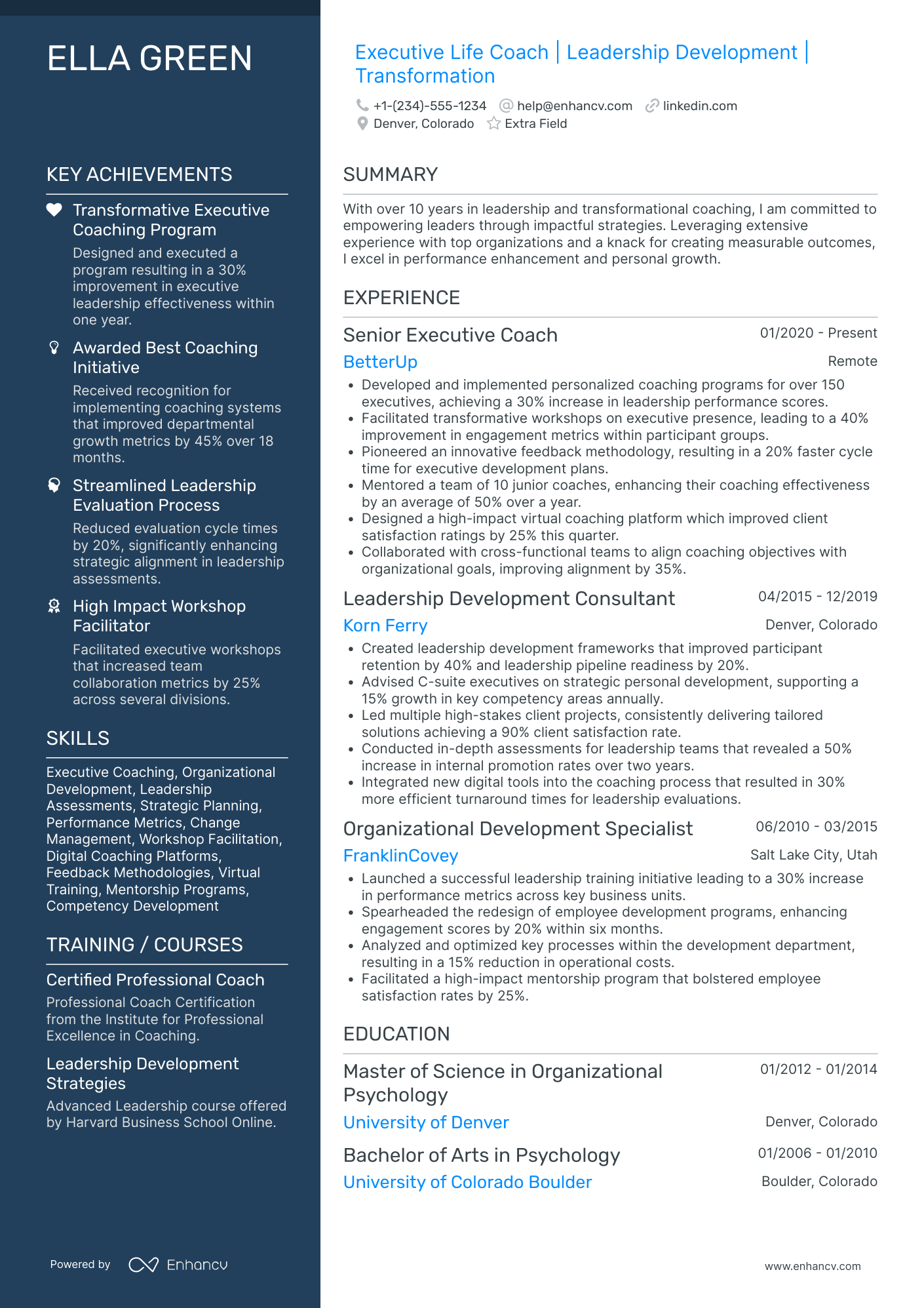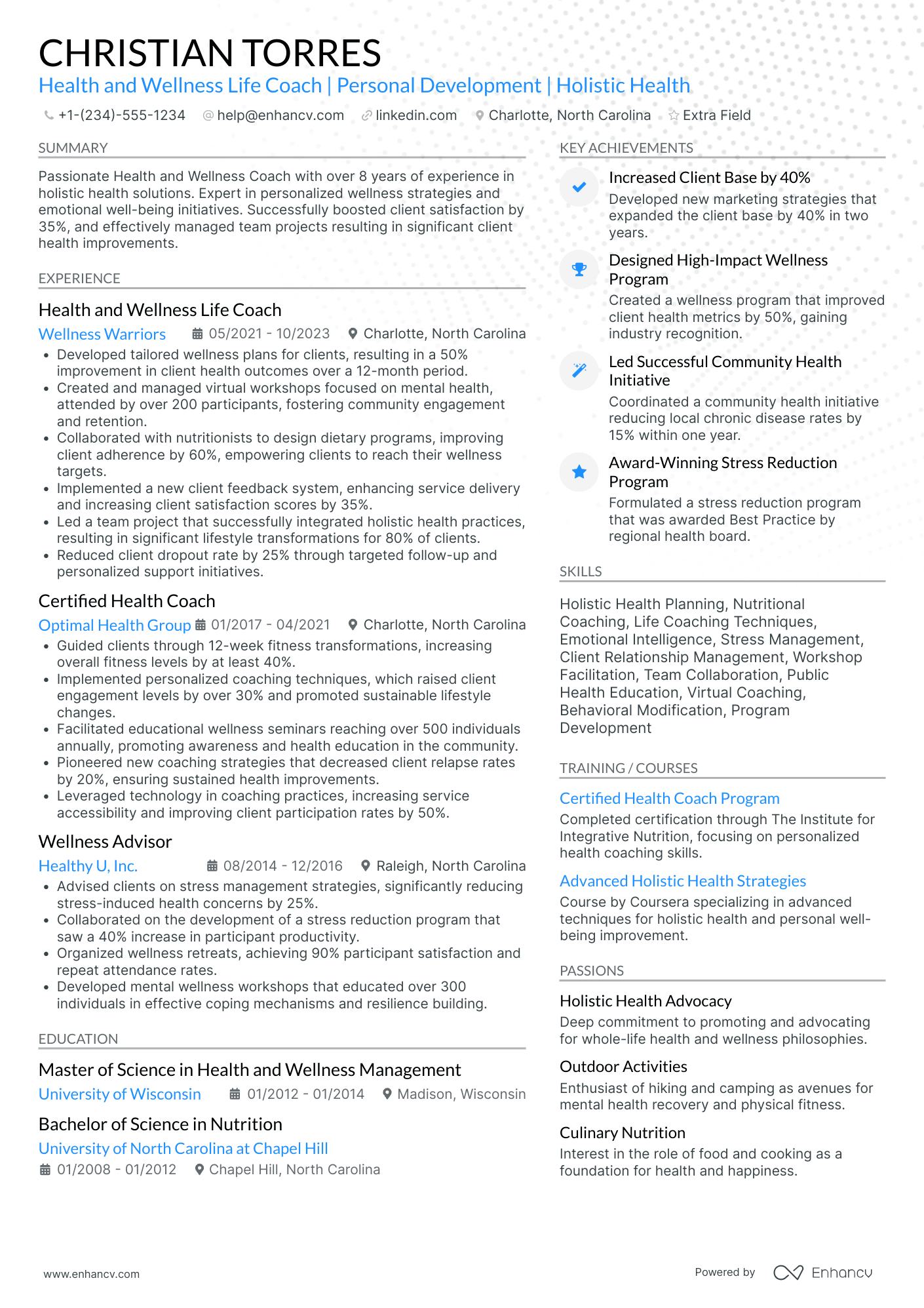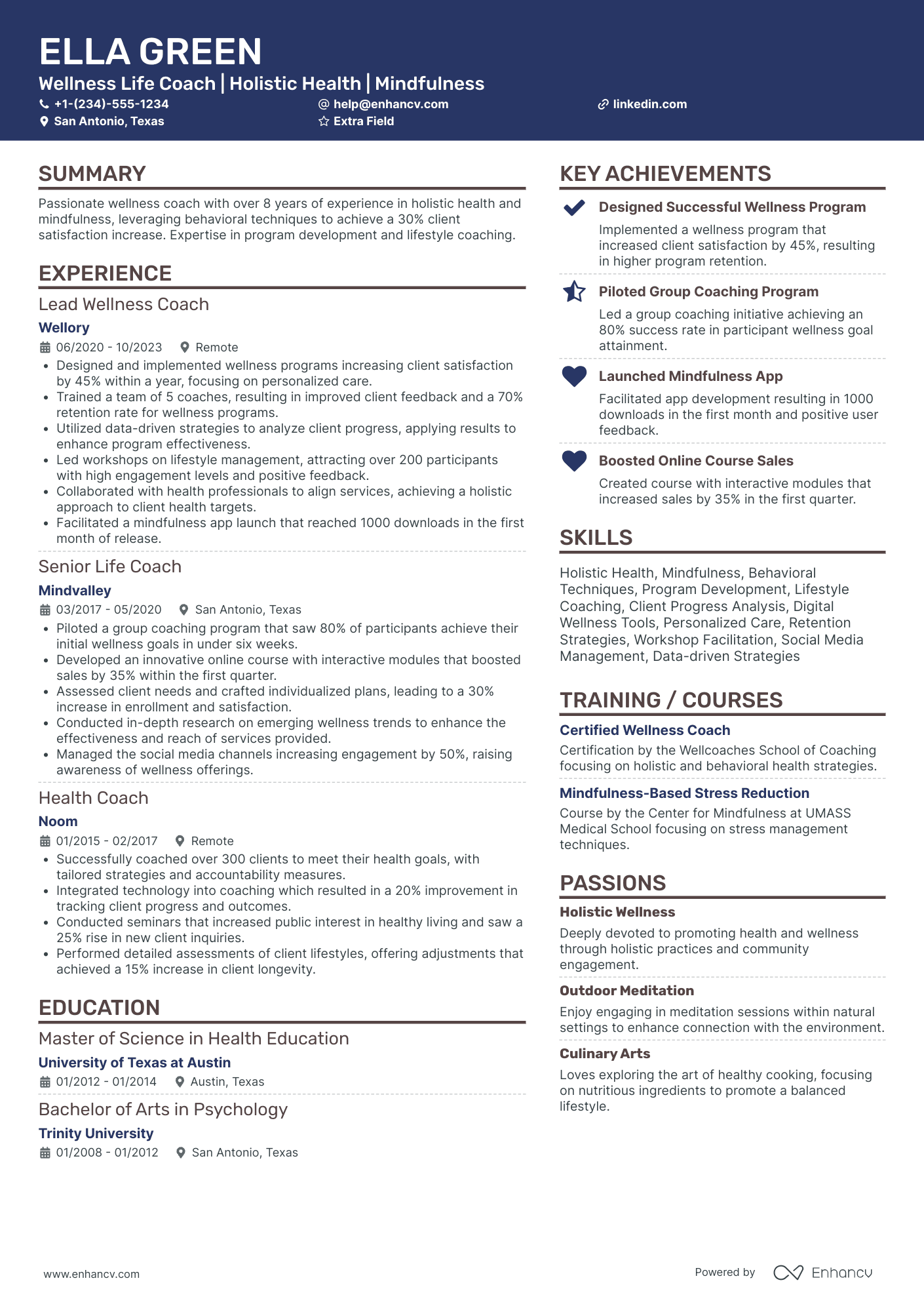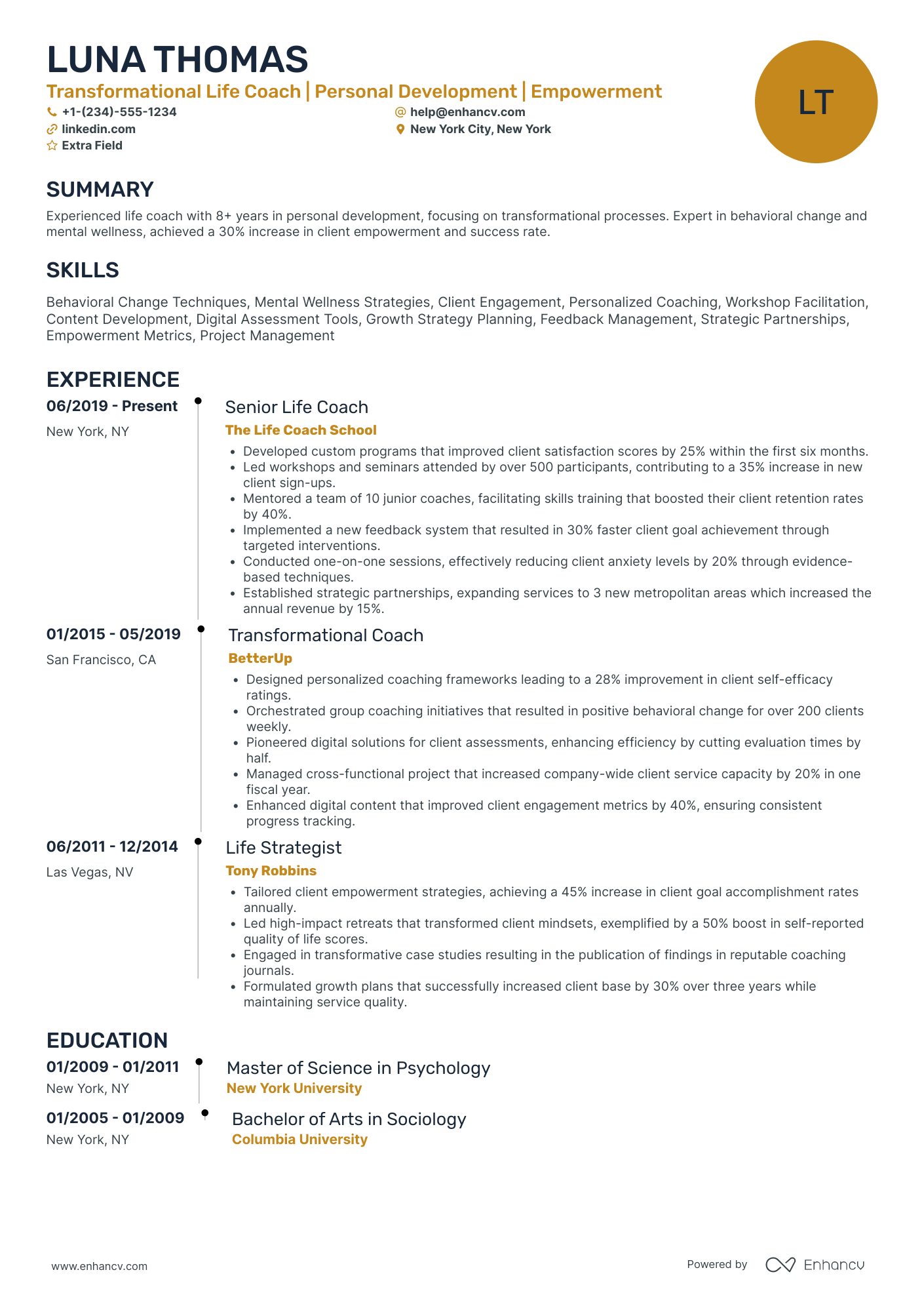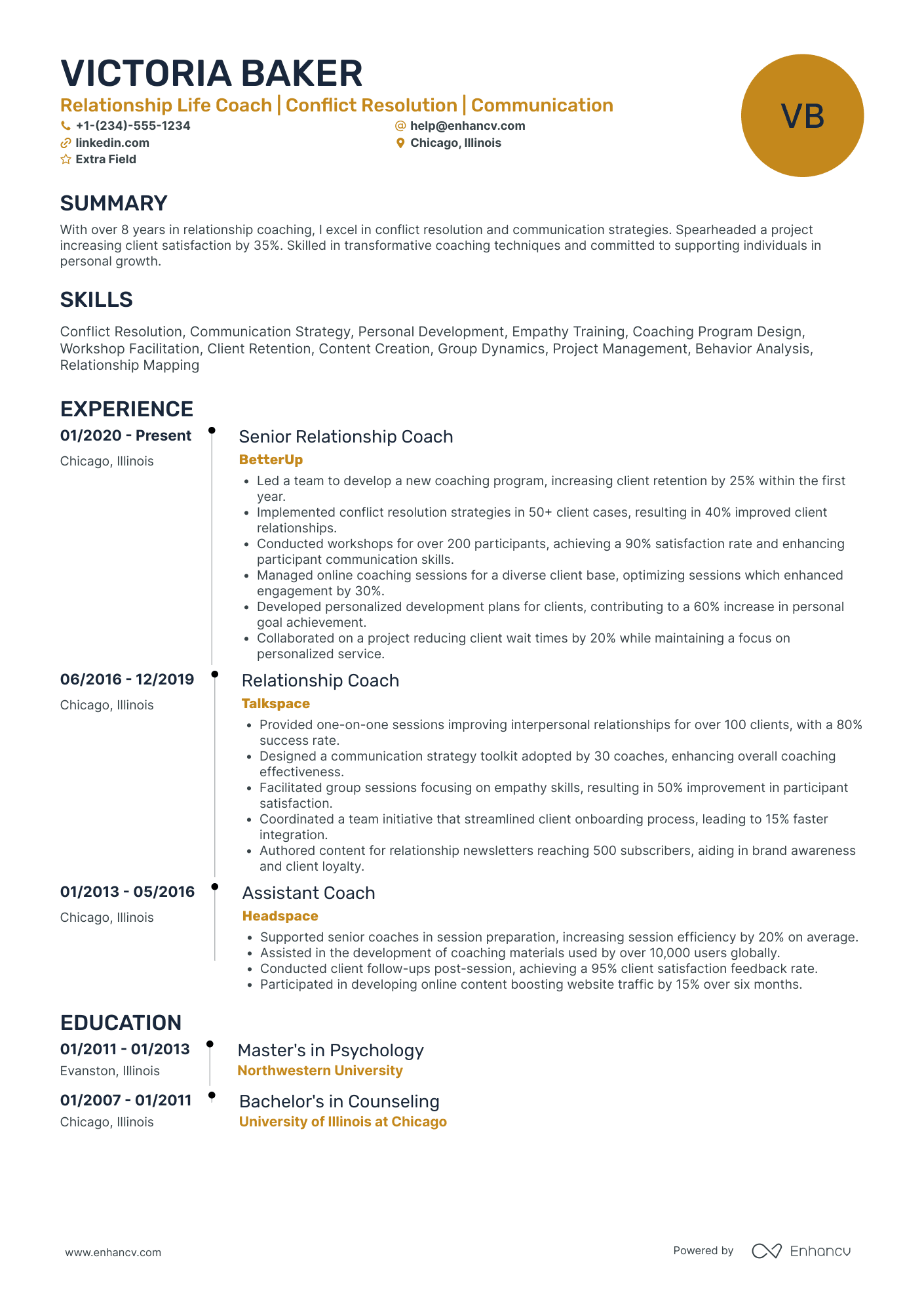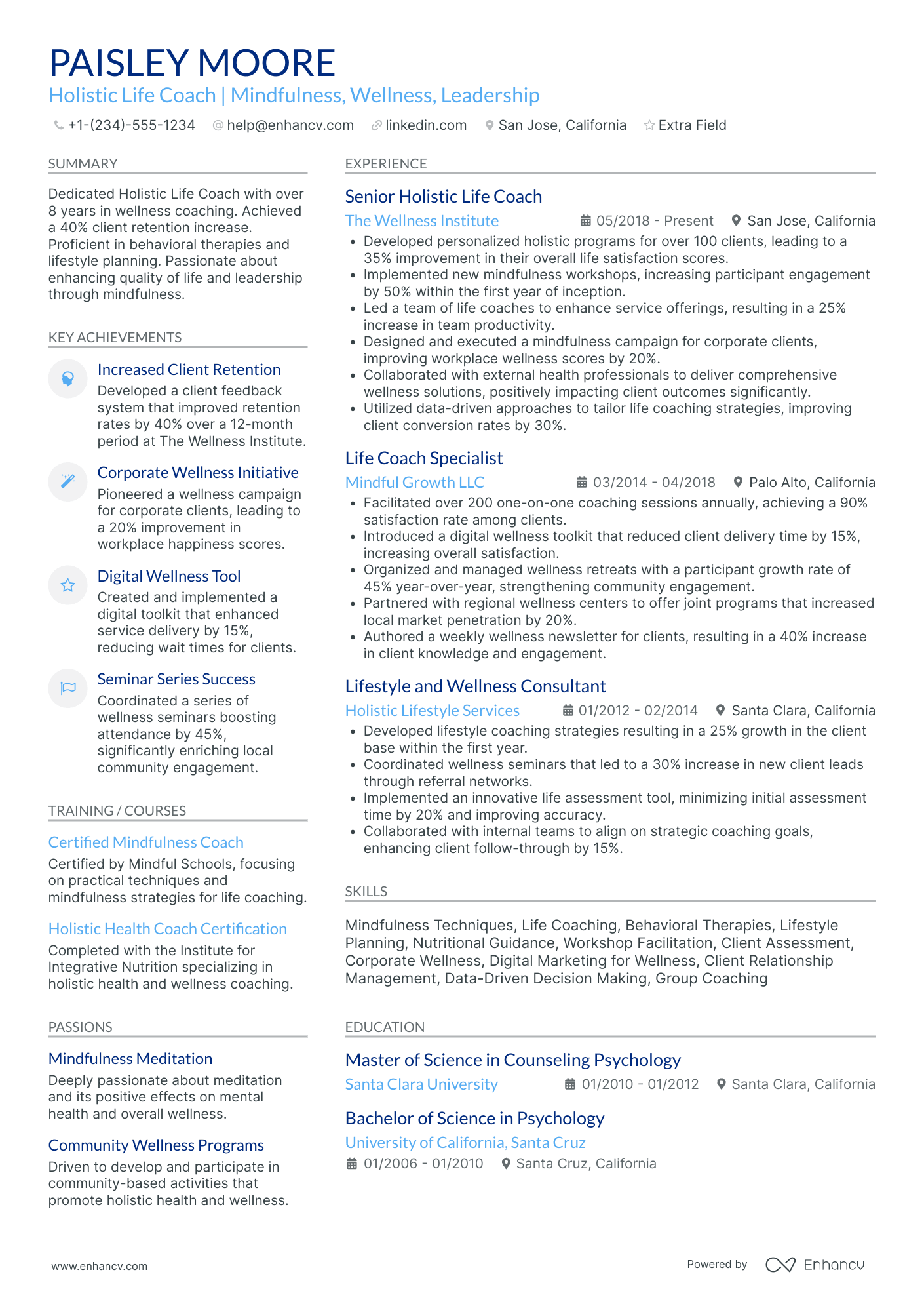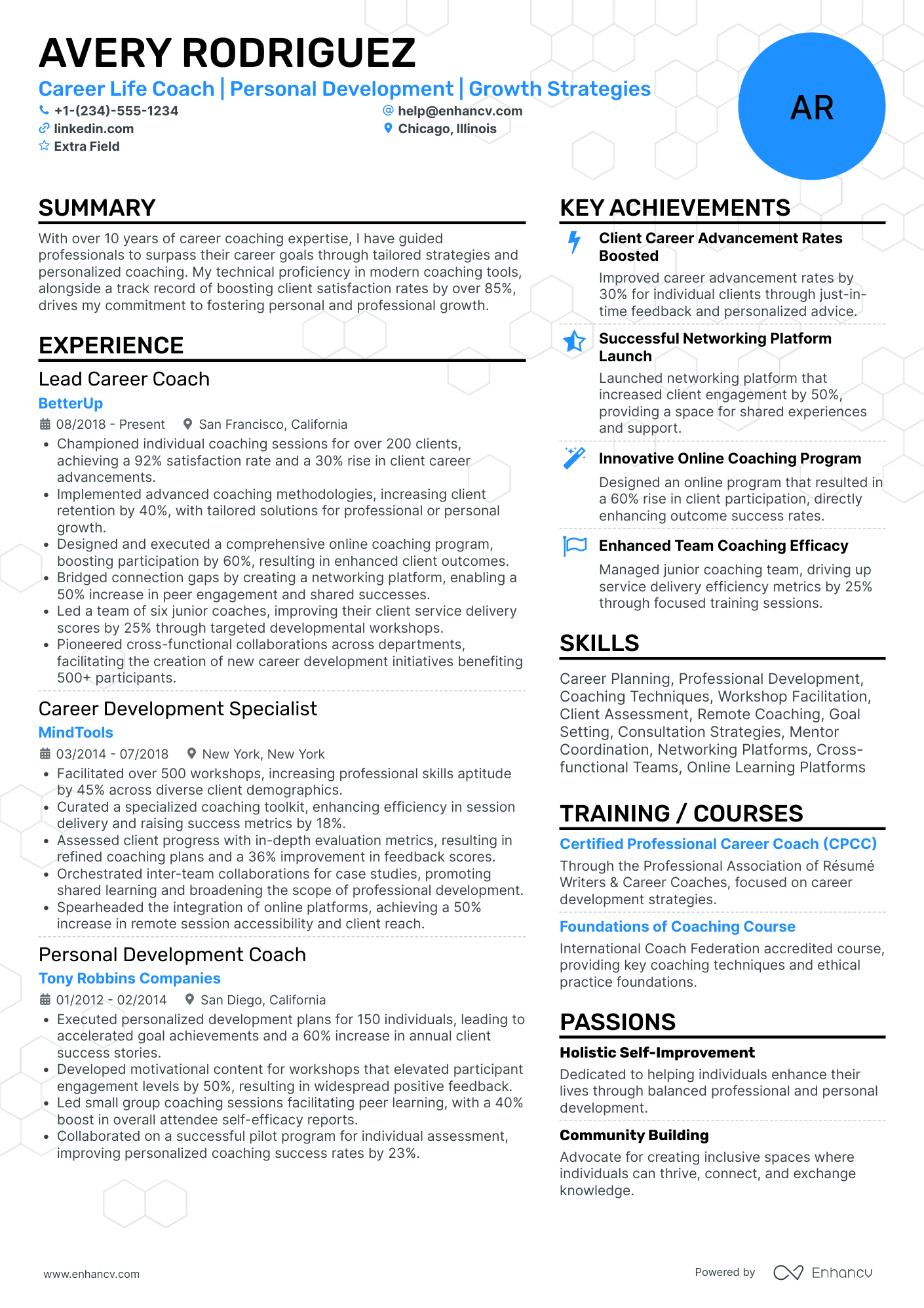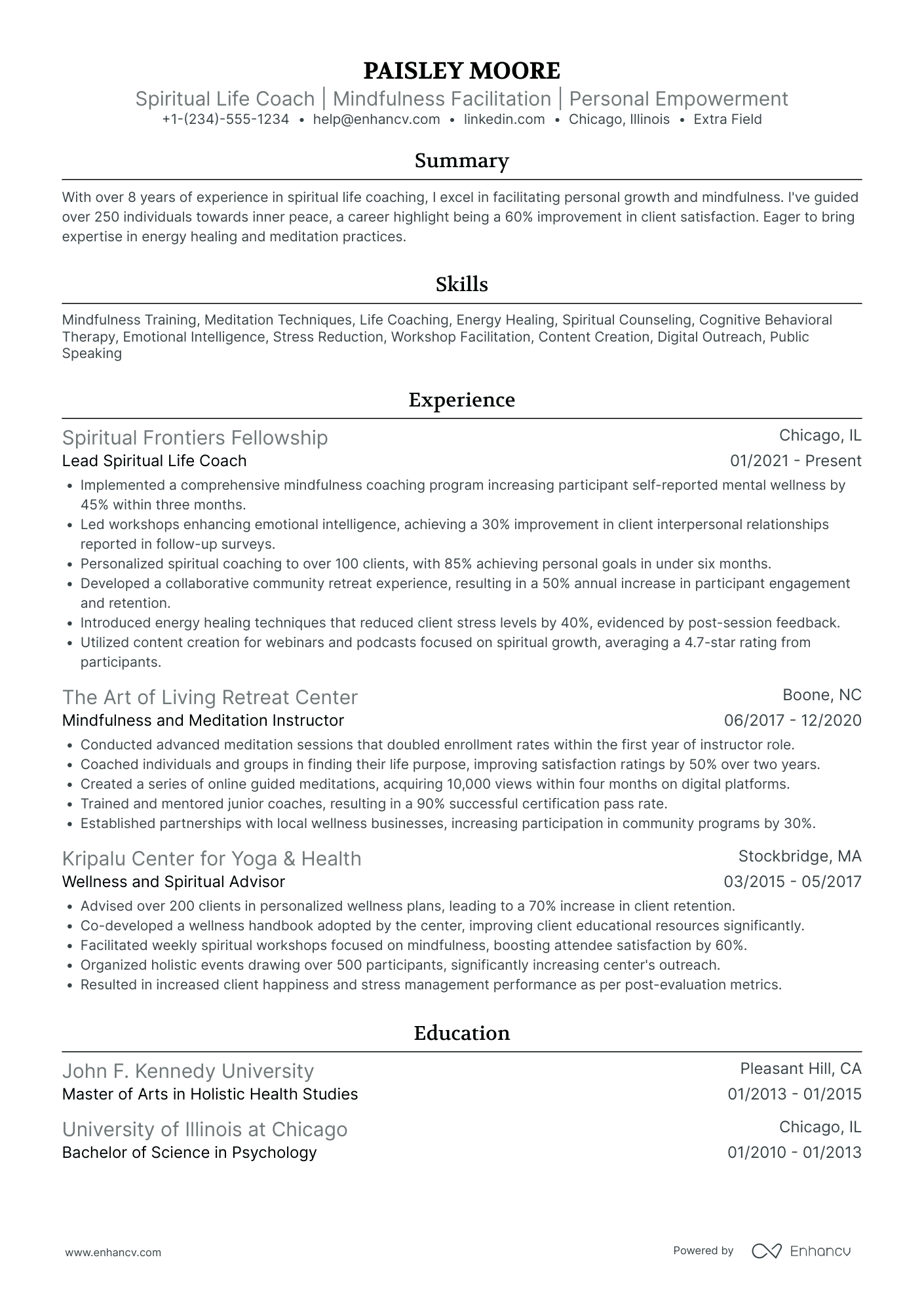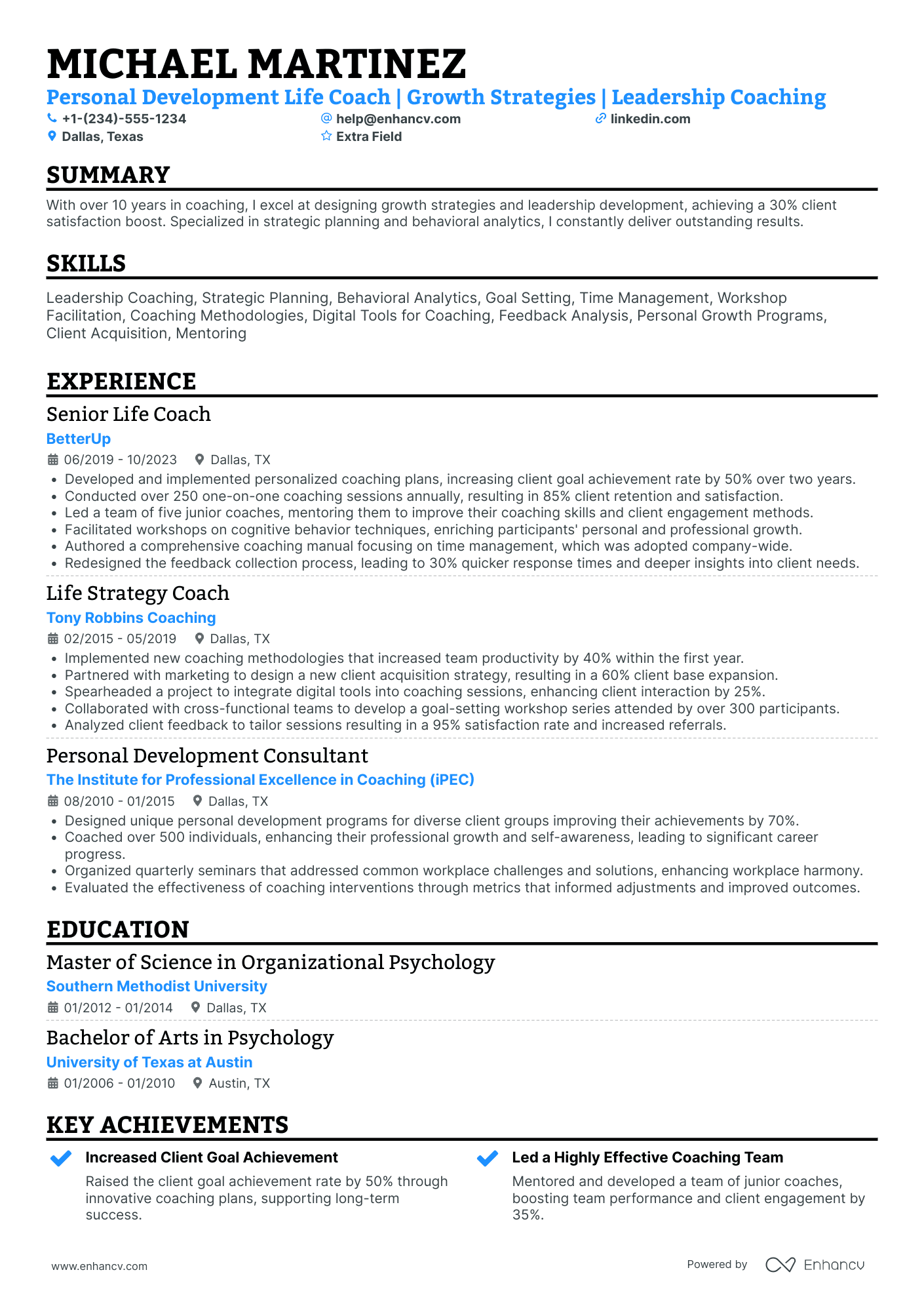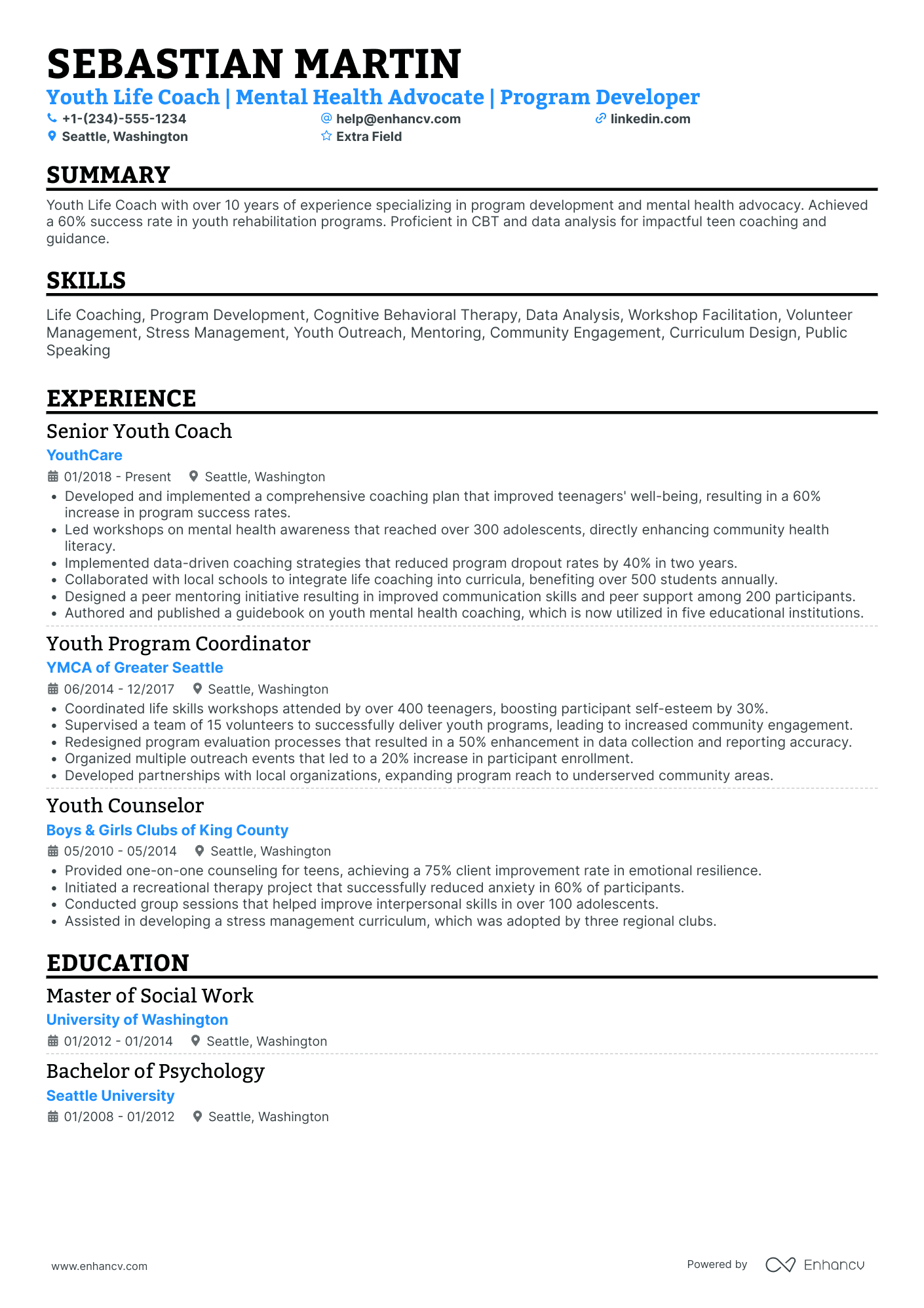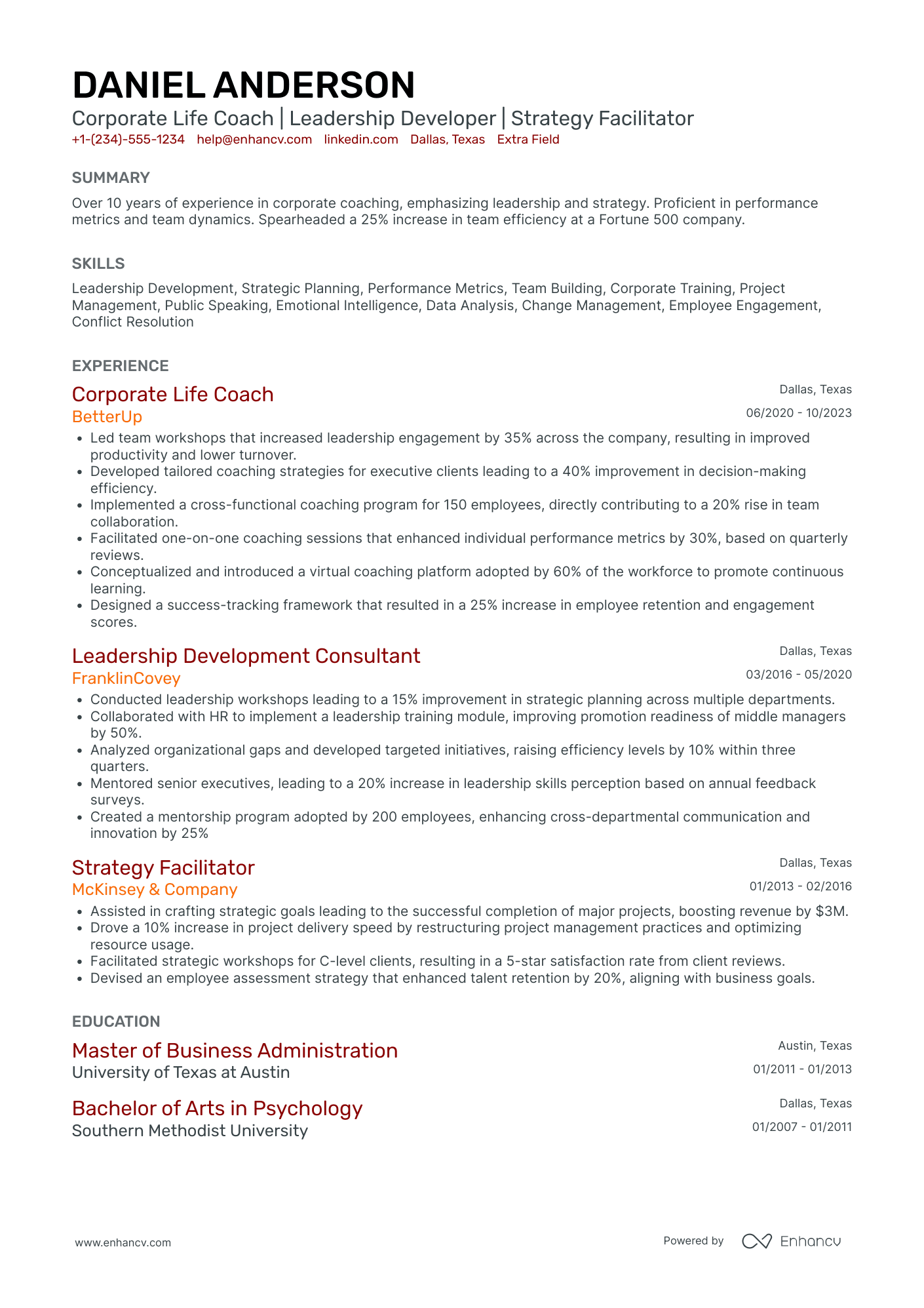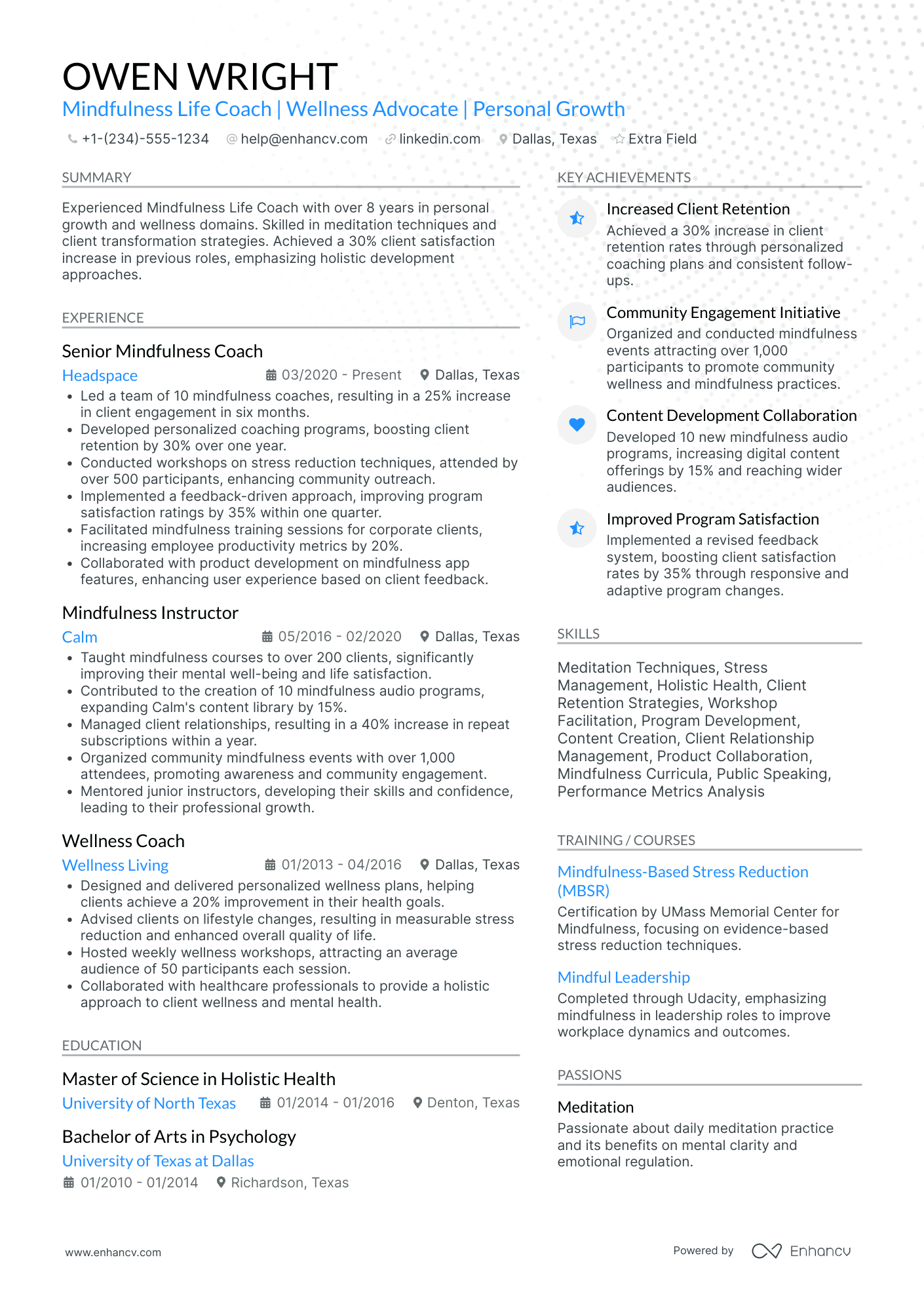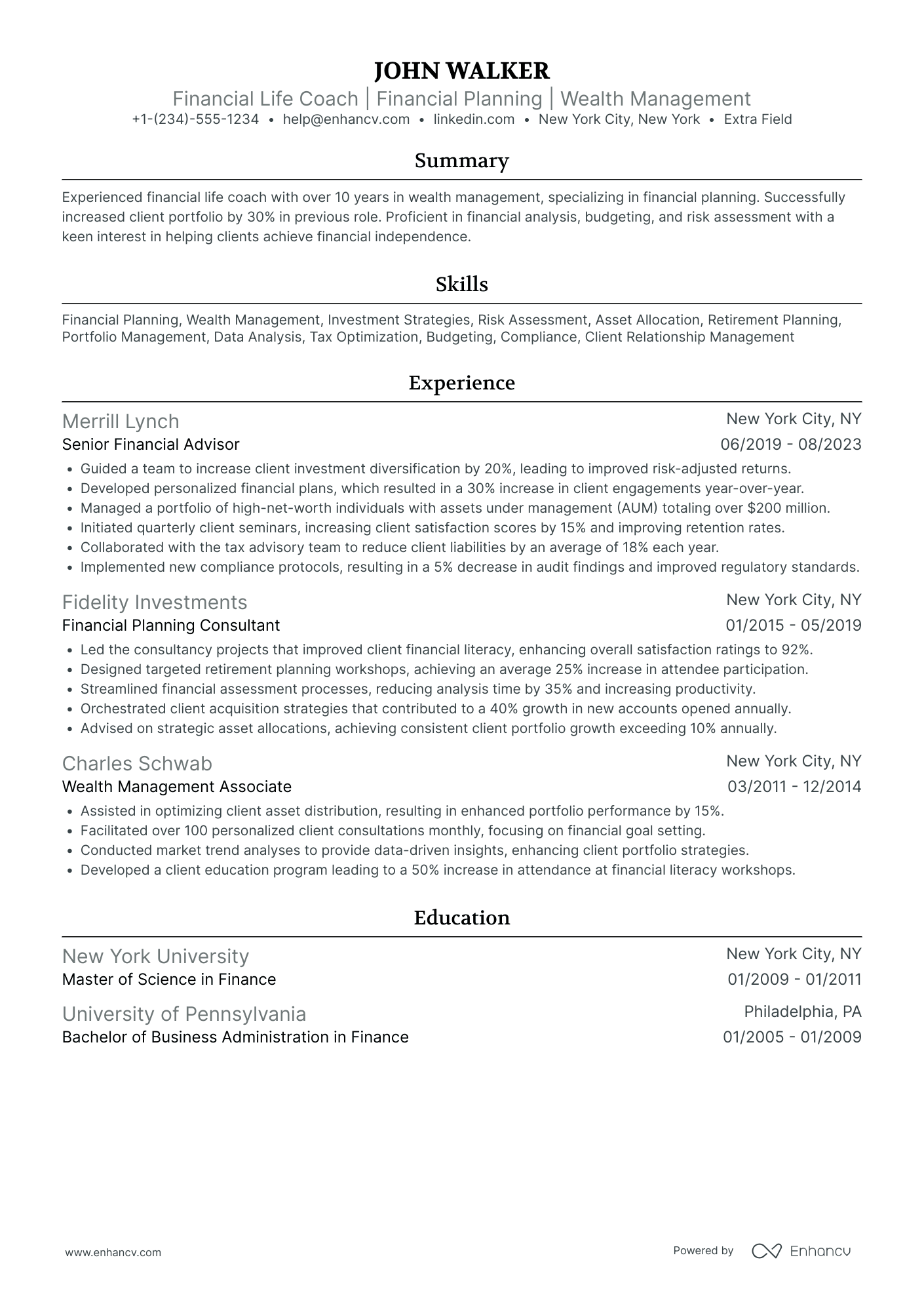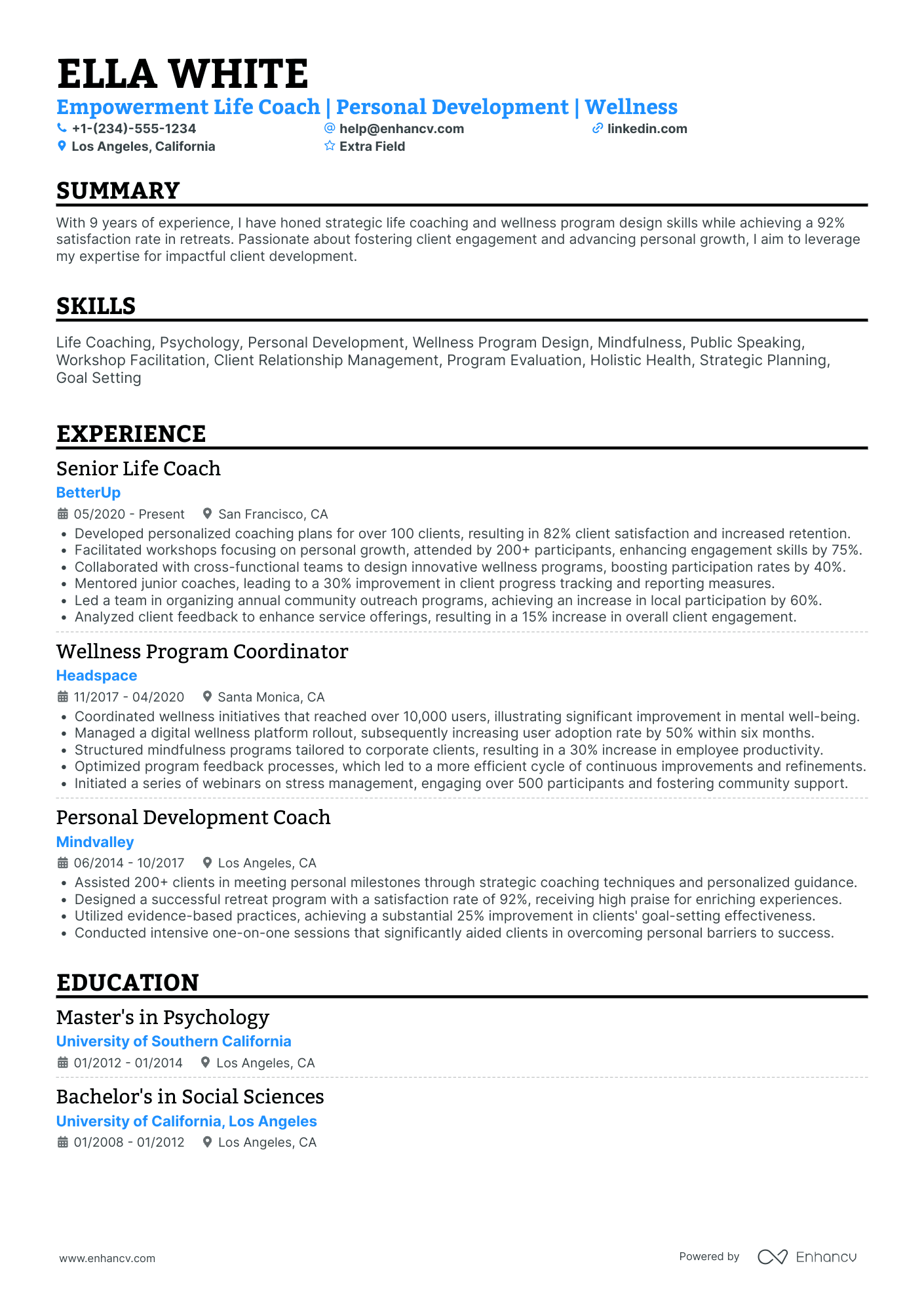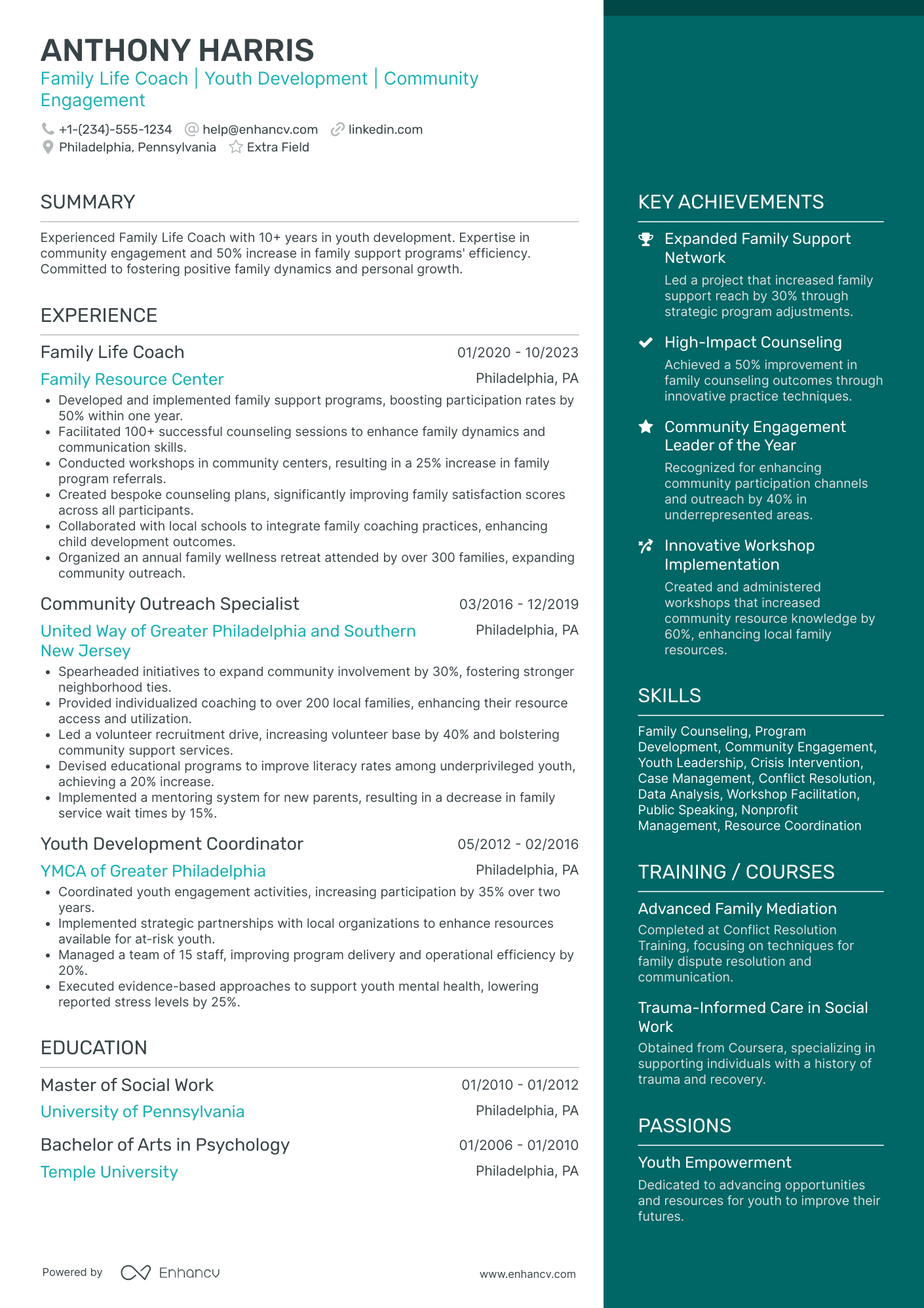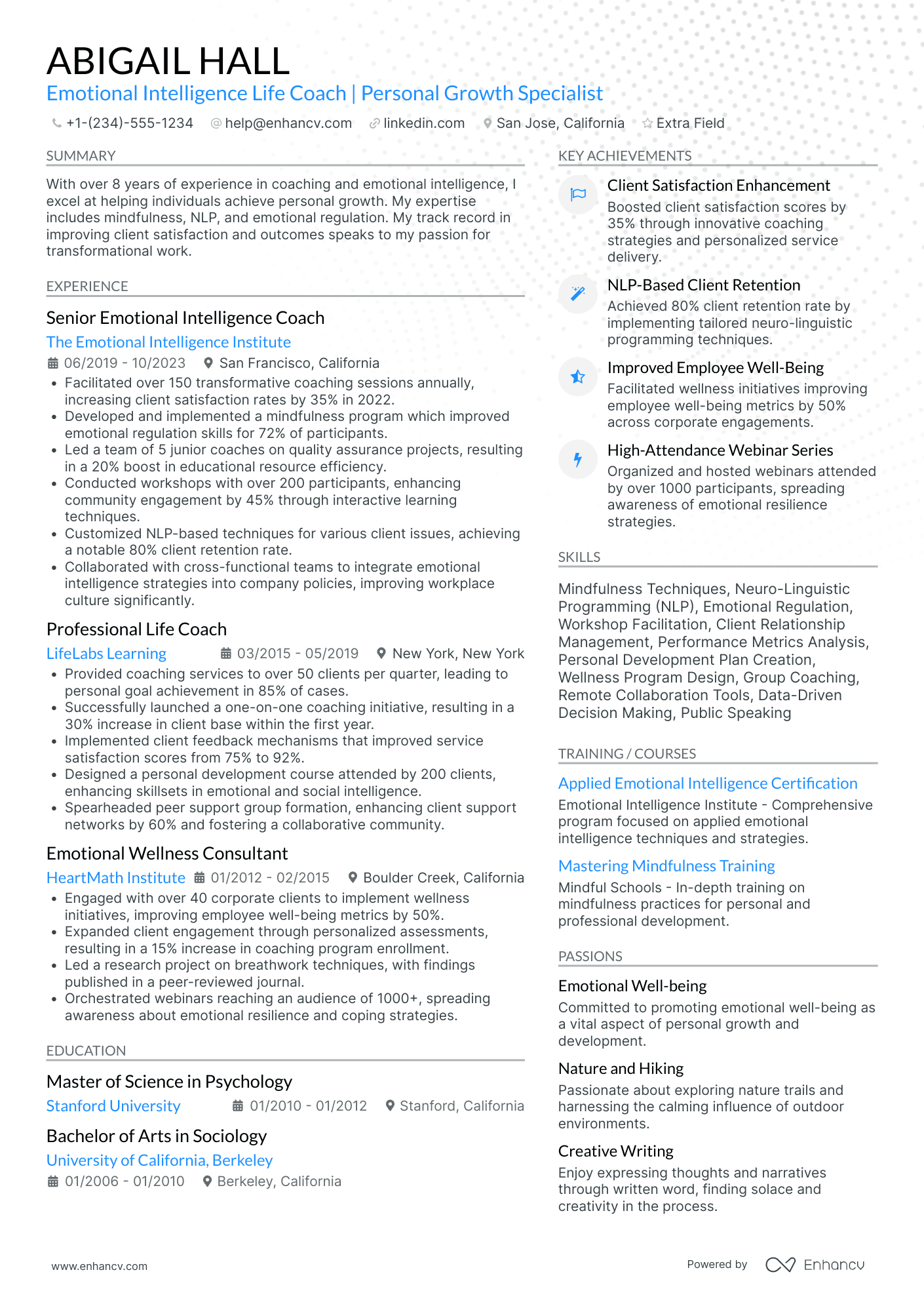Coaching professionals often struggle to effectively showcase their unique interpersonal skills on a resume. Our resume examples demonstrate how to highlight these essential abilities and present them in a compelling manner. Dive into the examples below to discover strategies for crafting an impactful coaching resume.
Coaching resume examples
By Experience
Junior Life Coach
Senior Life Coach
Leadership Life Coach
By Role
Life Coach
Life coaching emerged from the personal development industry. That's why personal development trends often influence life coaching practices.
Here are some tips for applying for life coaching positions:
- Experience in various coaching methods is crucial. Knowing about Cognitive Behavioral Coaching, Neuro-Linguistic Programming, or Holistic Coaching can be advantageous. These methods constitute many coaching practices.
- Display here your experience with different coaching methods in your resume, as overlooking that can result in missing an opportunity.
- Prioritize your personal development journey. Many successful life coaches started their careers after going through significant personal growth. Highlighting your development experiences can make your application more context-rich.
- Don’t just list down your coaching methods. Show how they've helped improve clients' lives – e.g., “helped clients achieve work-life balance through...” or “improved clients' self-esteem using...”. Follow the “skill-action-results” pattern.
